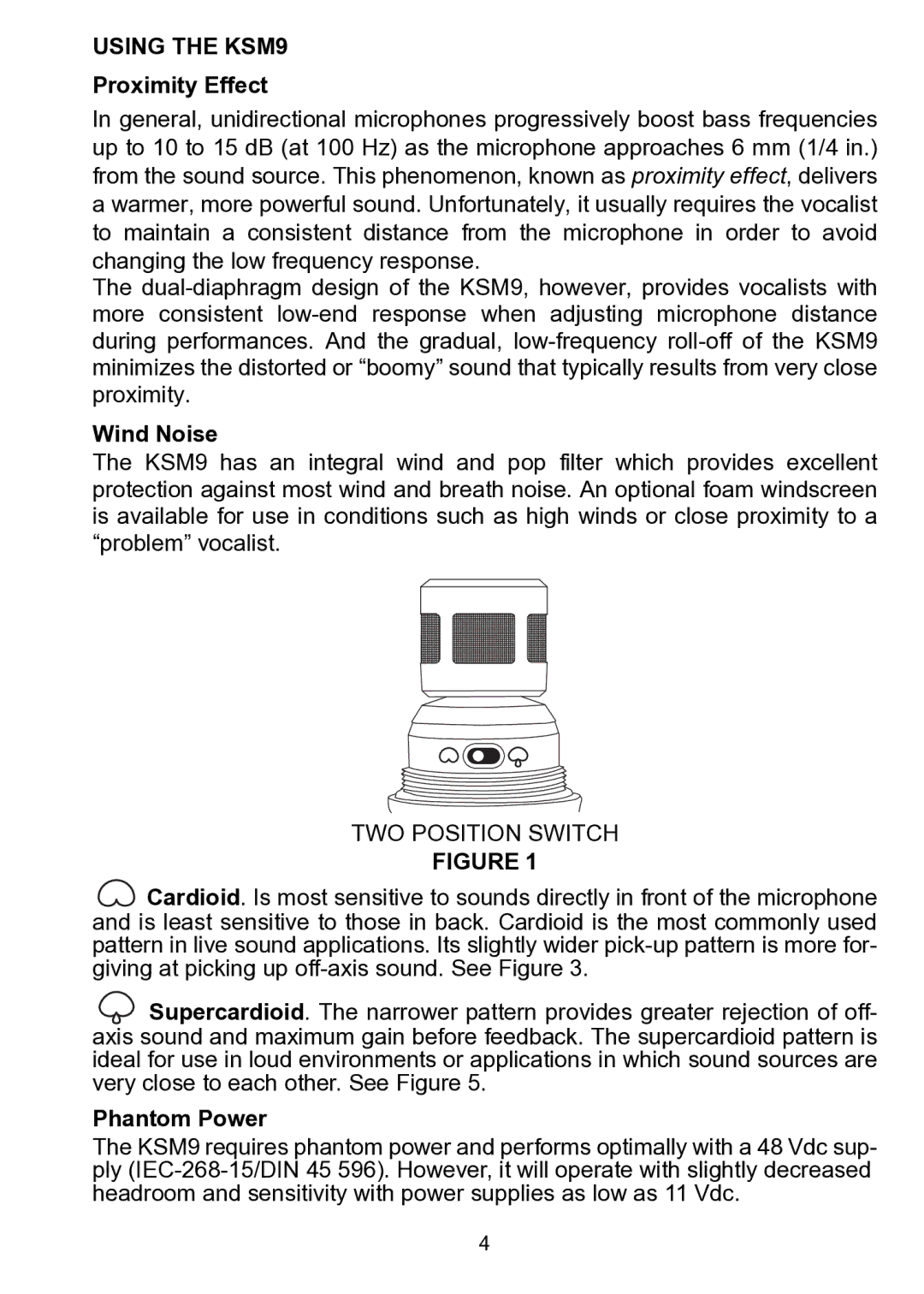
USING THE KSM9
Proximity Effect
In general, unidirectional microphones progressively boost bass frequencies up to 10 to 15 dB (at 100 Hz) as the microphone approaches 6 mm (1/4 in.) from the sound source. This phenomenon, known as proximity effect, delivers a warmer, more powerful sound. Unfortunately, it usually requires the vocalist to maintain a consistent distance from the microphone in order to avoid changing the low frequency response.
The
Wind Noise
The KSM9 has an integral wind and pop filter which provides excellent protection against most wind and breath noise. An optional foam windscreen is available for use in conditions such as high winds or close proximity to a “problem” vocalist.
TWO POSITION SWITCH
FIGURE 1
![]() Cardioid. Is most sensitive to sounds directly in front of the microphone and is least sensitive to those in back. Cardioid is the most commonly used pattern in live sound applications. Its slightly wider
Cardioid. Is most sensitive to sounds directly in front of the microphone and is least sensitive to those in back. Cardioid is the most commonly used pattern in live sound applications. Its slightly wider
Supercardioid. The narrower pattern provides greater rejection of off- axis sound and maximum gain before feedback. The supercardioid pattern is ideal for use in loud environments or applications in which sound sources are very close to each other. See Figure 5.
Phantom Power
The KSM9 requires phantom power and performs optimally with a 48 Vdc sup- ply
4
